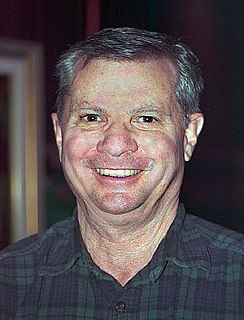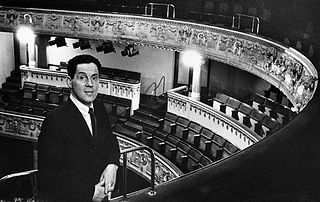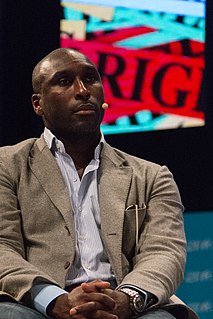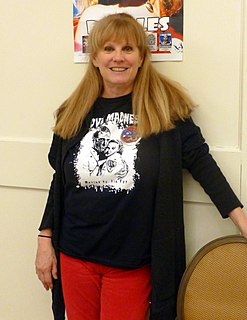A Quote by Sydney Pollack
I will not ever say that it's good to start with too little preparation, because that's patently not true. But I don't rehearse the way a lot of directors do, to stage a scene in terms of manners and attitudes and lock them in.
Related Quotes
The Ramones were a great bunch of guys. They were very quiet, very shy. They were a little in awe of the filmmaking process, probably because we started at 7 a.m. I do remember the very first day of shooting, I met them and did the scene in the bedroom where Joey sings to me, and they were all scattered around my bedroom in my little fantasy scene. That was the first scene we shot of the movie. That scene is kind of a strange way to start a movie. "Okay, get undressed, and these weird guys in leather jackets and ripped jeans are going to sing to you."
People with the best intentions will often give you advice on why you shouldn’t take a risk because of what could happen. While some of what they say may be true, you should never allow them to get their negative anchors into your mind because, like them, you too will begin to sink. Next time this happens, throw them a life-line, and ask them what is good about their situation.
In a lot of movies, honestly, the directors don't talk to you that much. Maybe they say, "Faster, slower," whatever. Sometimes they give you little adjustments, because sometimes you want to start out neutral, but a lot of times you wind up directing yourself anyway, just doing what you think is the right thing to do.
Some directors don't say much. Michael Mann, for example. I remember on 'The Insider' he never had much to say. He would do a scene, just kind of nod, and then set it up to do it again. And you might do a scene 10 or 12 times or more, the same little 31-second bit. And you could tell he wasn't satisfied, but he wouldn't say much.
It's a romantic view of Canada. It's like Michael Moore saying we don't lock our doors in Canada. I lock my door mainly because my girlfriend wants me to lock the door, but mind you we lock our doors. It is a little simplistic to say that we blend easily back home with other cultures. It's difficult, but I think it's mainly a big city phenomenon.






































